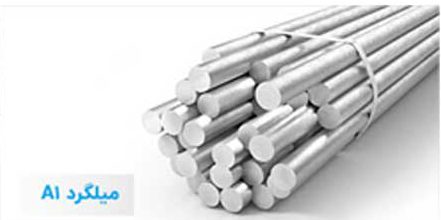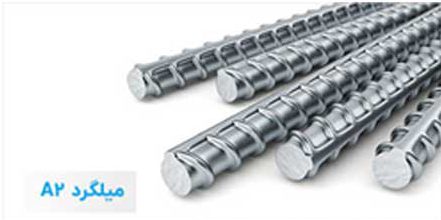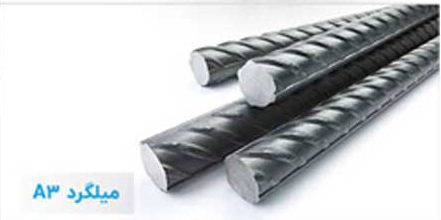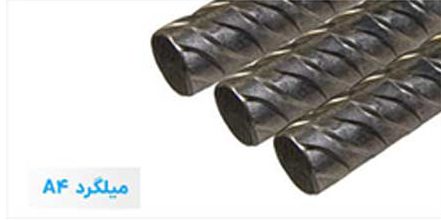Products
Our products
Introducing A1 grade rebar

This rebar with a current stress of 2300 kg/cm2 and a breaking stress of 3800 kg/cm2 and a relative plastic deformation (at the time of breaking) of 25% is known as a soft rebar and is mostly smooth and without tread. This rebar is suitable for forging, deformation and welding operations and is generally known as a ductile rebar.
Introducing A2 grade rebar

This type of rebar with a current stress of 3000 kg/cm2 and a breaking stress of 5000 kg/cm2 and a relative plastic deformation (at the time of breaking) of 19% is known as semi-dry (crisp) and semi-soft rebar, which is ribbed and mostly spring-shaped. This rebar is suitable for construction operations and especially for damping, and it is possible to perform welding operations on it if necessary, although it is recommended to avoid welding it if possible.
Introducing A3 grade rebar

This rebar with a current stress of 4000 kg/cm2 and a breaking stress of 6000 kg/cm2 and a relative plastic deformation (at the time of breaking) of 14% is suitable as a dry (crisp) rebar for civil, industrial and construction operations, which is ribbed and mostly cross-ribbed and for forging and Many deformations with sharp angles are not suitable, and welding operations on it are not allowed in any way.
Introducing A4 grade rebar

The 500 tread rebar has a current stress of 5000 kg per square centimeter and a breaking stress of 7000 kg per square centimeter.
Rebar production processes are carried out in different ways in the advanced countries of the world. In the valid standards of the world according to the climatic conditions of each country, the production processes are controlled clearly and with respect to various factors.